文体学课件
- 格式:ppt
- 大小:423.00 KB
- 文档页数:14
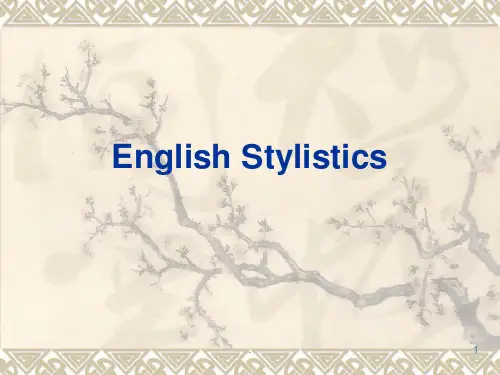

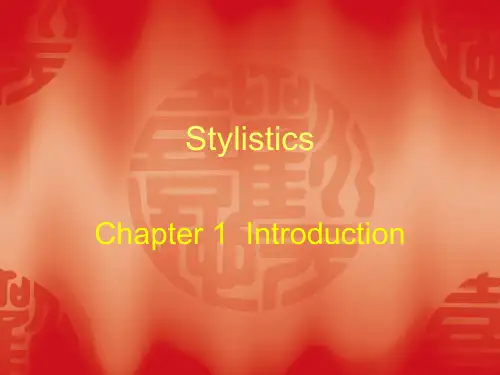
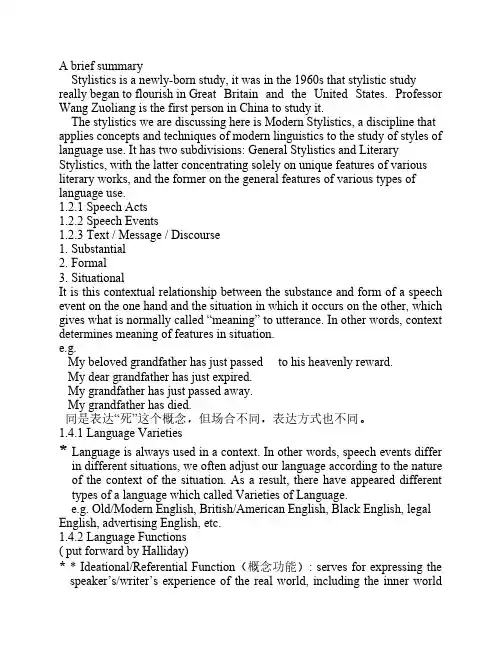
A brief summaryStylistics is a newly-born study, it was in the 1960s that stylistic study really began to flourish in Great Britain and the United States. Professor Wang Zuoliang is the first person in China to study it.The stylistics we are discussing here is Modern Stylistics, a discipline that applies concepts and techniques of modern linguistics to the study of styles of language use. It has two subdivisions: General Stylistics and Literary Stylistics, with the latter concentrating solely on unique features of various literary works, and the former on the general features of various types of language use.1.2.1 Speech Acts1.2.2 Speech Events1.2.3 Text / Message / Discourse1. Substantial2. Formal3. SituationalIt is this contextual relationship between the substance and form of a speech event on the one hand and the situation in which it occurs on the other, which gives what is normally called “meaning” to utterance. In other words, context determines meaning of features in situation.e.g.My beloved grandfather has just passed to his heavenly reward.My dear grandfather has just expired.My grandfather has just passed away.My grandfather has died.同是表达“死”这个概念,但场合不同,表达方式也不同。

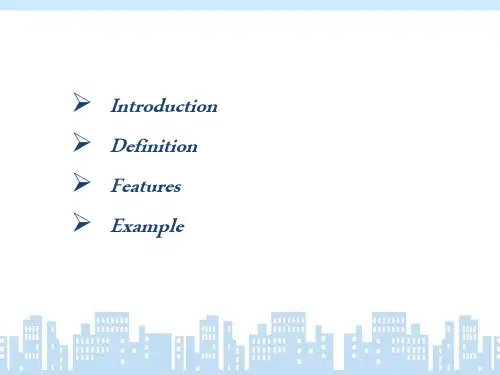


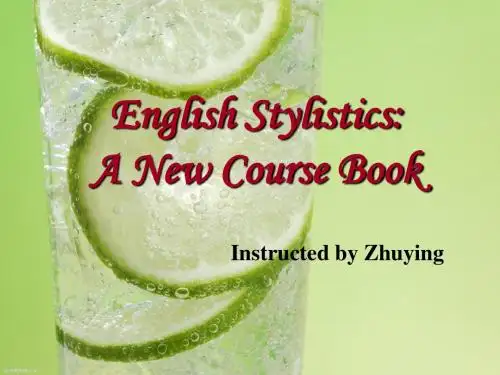
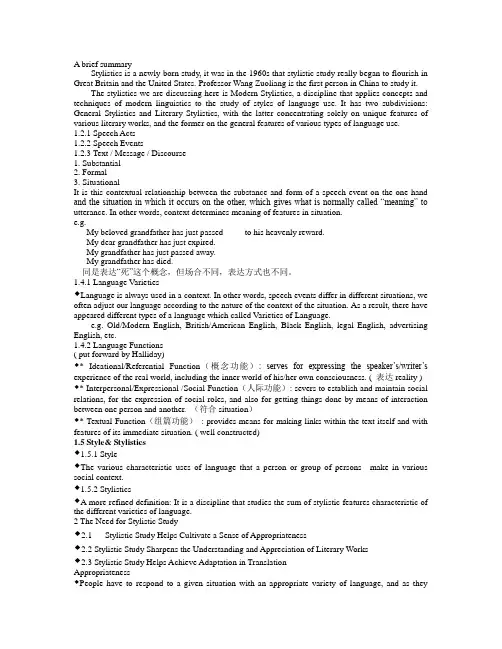
A brief summaryStylistics is a newly-born study, it was in the 1960s that stylistic study really began to flourish in Great Britain and the United States. Professor Wang Zuoliang is the first person in China to study it.The stylistics we are discussing here is Modern Stylistics, a discipline that applies concepts and techniques of modern linguistics to the study of styles of language use. It has two subdivisions: General Stylistics and Literary Stylistics, with the latter concentrating solely on unique features of various literary works, and the former on the general features of various types of language use.1.2.1 Speech Acts1.2.2 Speech Events1.2.3 Text / Message / Discourse1. Substantial2. Formal3. SituationalIt is this contextual relationship between the substance and form of a speech event on the one hand and the situation in which it occurs on the other, which gives what is normally called ―meaning‖ to utterance. In other words, context determines meaning of features in situation.e.g.My beloved grandfather has just passed to his heavenly reward.My dear grandfather has just expired.My grandfather has just passed away.My grandfather has died.同是表达―死‖这个概念,但场合不同,表达方式也不同。
